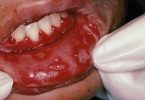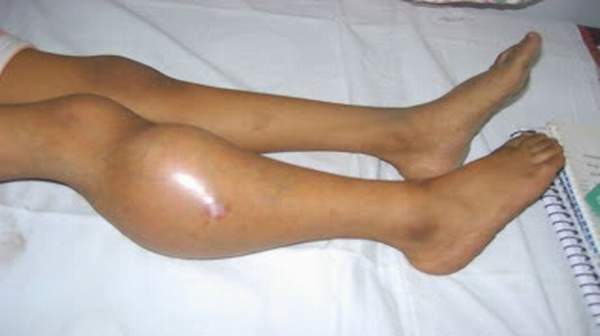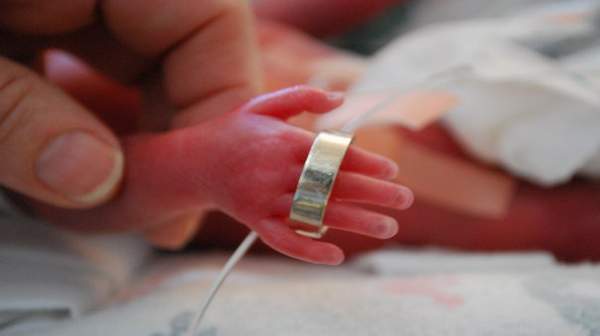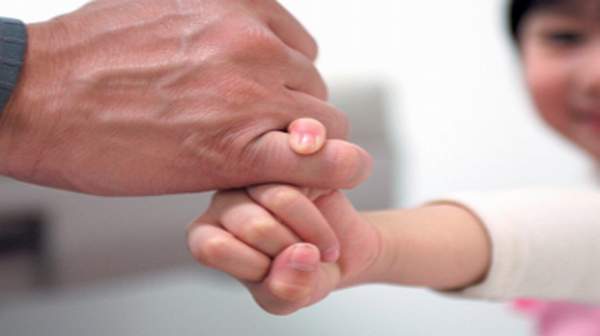What's in this article?
Most children wet the bed occasionally or even nightly during the potty-training years. In fact, it is estimated that seven million children in the United States wet their beds on a regular basis. Controlling bladder function during sleep is usually the last stage of potty-training. In other words, it is normal for children to wet the bed while sleeping during that learning process. Bedwetting is typically not even considered to be a problem until after age 7.
Bedwetting in children is often simply a result of immaturity. The age at which children become able to control their bladders during sleep is variable. Bladder control is a complex process that involves coordinated action of the muscles, nerves, spinal cord and brain. In this case, the problem will resolve in time. On the other hand, it may be an indication of an underlying medical condition, such as obstruction of the urinary tract. If bedwetting persists beyond the age of 6 or 7, you should consult your pediatrician.
Typrs of Bedwetting
There are 2 types of bedwetting: primary and secondary. Primary means bedwetting that has been ongoing since early childhood without a break. A child with primary bedwetting has never been dry at night for any significant length of time. Secondary bedwetting is bedwetting that starts up after the child has been dry at night for a significant period of time, at least 6 months.
What Causes Primary Bedwetting?
The cause is likely due to one or a combination of the following:
- The child cannot yet hold urine for the entire night.
- The child does not waken when his or her bladder is full.
- The child produces a large amount of urine during the evening and night hours.
- The child has poor daytime toilet habits. Many children habitually ignore the urge to urinate and put off urinating as long as they possibly can. Parents usually are familiar with the leg crossing, face straining, squirming, squatting, and groin holding that children use to hold back urine.
What Causes Secondary Bedwetting?
Secondary bedwetting can be a sign of an underlying medical or emotional problem. The child with secondary bedwetting is much more likely to have other symptoms, such as daytime wetting. Common causes of secondary bedwetting include the following:
- Urinary tract infection: The resulting bladder irritation can cause pain or irritation with urination, a stronger urge to urinate (urgency), and frequent urination (frequency). Urinary tract infections in children may indicate another problem, such as an anatomical abnormality.
- Diabetes: People with diabetes have a high level of sugar in their blood. The body increases urine output to try to get rid of the sugar. Having to urinate frequently is a common symptom of diabetes.
- Structural or anatomical abnormality: An abnormality in the organs, muscles, or nerves involved in urination can cause incontinence or other urinary problems that could show up as bedwetting.
- Neurological problems: Abnormalities in the nervous system, or injury or disease of the nervous system, can upset the delicate neurological balance that controls urination.
- Emotional problems: A stressful home life, as in a home where the parents are in conflict, sometimes causes children to wet the bed. Major changes, such as starting school, a new baby, or moving to a new home, are other stresses that can also cause bedwetting. Children who are being physically or sexually abused sometimes begin bedwetting.
Causes of Bedwetting
In most children there is no specific cause. Bedwetting is not your child’s fault. It occurs because the volume of urine produced at night is more than your child’s bladder can hold. The sensation of a full bladder does not seem to be strong enough to wake up your child at night.
Some factors are thought to make bedwetting worse or more likely. They may tip the balance in some children on some nights. These include the following:
- Times of stress may start up bedwetting again after a period of dryness. For example: starting school, arrival of a new baby, illness, bullying, abuse.
- Drinks and foods that contain caffeine. These include tea, coffee, cola and chocolate. Caffeine increases the amount of urine made by the kidneys (it is a diuretic).
- Constipation. Large stools (faeces) in the back passage (rectum) may press on and irritate the back of the bladder. In particular, children who have persistent (chronic) constipation are more likely to have a bedwetting problem.
- Children with attention deficit hyperactivity disorder (ADHD) have an increased risk of having a bedwetting problem.
Symptoms of Bedwetting
Bed-wetting is involuntary urination while asleep after the age at which staying dry at night can be reasonably expected.
Most kids are fully toilet trained by age 5, but there’s really no target date for developing complete bladder control. Between the ages of 5 and 7, bed-wetting remains a problem for some children. After 7 years of age, a small number of children still wet the bed.
Some General Tips That May Help
- Nappies If you decide ‘now is the time’ then stop using nappies. Some older children are still put in nappies at night when trying to be dry. This gives them little motivation or need to be dry. The risk without nappies is wet beds for a while. However, in younger children, if a trial period without nappies does not work out, then go back to nappies for a while and try again at a later date.
- Patience, reassurance and love As mentioned above, if trying without nappies fails at age 3, it may be wise to give up for a while and then try again a few months later. Treatments are not normally needed or advised for children under the age of 5 years. Keep trying every few months until successful. Even if your child is bedwetting when he or she starts school, there is a high chance that it will stop soon. There is a great variation in when children become naturally dry at night.
Do not punish children for bedwetting. It is not their fault. Rather, they should be praised and made a fuss of if you notice any improvement. Try to be sensitive to any family or school disruption that might be stressful to your child. If bedwetting appears after a period of dryness, it may reflect a hidden stress or fear (such as bullying at school, etc).
- Explaining to children It needs your child’s co-operation to be dry at night. As soon as your child is old enough to understand, a simple explanation on the following lines can be helpful. ‘The body makes wee (water) all the time and stores it in the bladder. The bladder is like a balloon which fills up with water. We open the bladder’s tap when the bladder gets full. The bladder fills up at night when we are asleep. However, the bladder tap should not go to sleep, and should wake us up when the bladder is full.’
- Child’s responsibility When old enough (about age 5 or 6), encourage your child to help change any wet sheets. It may be quicker for parents to do it, but many children respond to being given responsibility. It might also give extra motivation for them to get out of bed and go to the toilet to avoid the chore of changing the sheets. Try to make it a matter-of-fact routine with as little fuss as possible.
- Getting up Make sure there are no hidden fears or problems about getting up at night. For example, fear of the dark or spiders, getting up from a top bunk, etc. Try leaving the bathroom light on.
- Drinks Restricting drinks sounds sensible, but it does not help to cure bedwetting. The bladder has to get used to filling up and holding on to urine. If you limit drinks all day then the bladder cannot be trained to hold on to larger amounts of urine. A sensible plan is only to give drinks to your child if he or she is thirsty in the 2-3 hours before bedtime. Do not restrict drinks for the rest of the day. Most children should drink about 6-8 cups of fluid a day.
- Also, as mentioned above, caffeine in tea, coffee, cola and chocolate may make bedwetting worse. These are therefore ideally avoided, especially in the few hours before bedtime.
- Lifting It is common practice to wake children up to take them to the toilet several hours after they go to sleep. However, this lifting is of little use, and may even prolong the problem. Your child has to get used to waking up when their bladder is full. Children often do not remember being lifted, and it usually does not help to achieve their own bladder control.
- However, make sure your child goes to the toilet just before bedtime. If your child does wake in the night then you should encourage him or her to go to the toilet then.
- Constipation If your child is constipated, see a doctor for advice and treatment. Treatment of constipation often cures bedwetting too.
- Nights away A common worry is that staying with friends or relatives will be embarrassing. However, it is not uncommon to find that the bedwetting stops for the nights away in a strange bed. A few days away with an understanding relative or friend may result in dry nights. This may be a very positive experience and encouraging for your child.
- Practical measures Use waterproof covers for mattress and duvet, and use absorbent quilted sheets. A moisturizer cream is useful to rub on the skin that is likely to become wet, to prevent chaffing and soreness.
Treatment of Bedwetting
In most cases, the recommended plan is to first try a number of self-help techniques, such as limiting the amount of liquid your child drinks in the evening, making sure they go to the toilet before going to sleep.
Reassuring your child that everything is okay is also important, don’t tell them off or punish them for wetting the bed as this will not help and could make the problem worse. It’s important for them to know they’re not alone and it will get better.
Because bedwetting tends to happen during the first few hours of sleep, a good method of preventing it is to make sure that your child goes to the bathroom before bed.
Commonly prescribed behavioral methods for treating the problem include:
- Establishing a regular bedtime routine that includes going to the bathroom
- Waking your child during the night before he/she typically wets the bed and taking him/her to the bathroom
- Developing a reward system to encourage your child, such as stickers for dry nights
- Talking to your child about the advantages of potty-training, such as not having to wear diapers and becoming a “big kid”
- Limiting beverages in the evening – even those last minute water requests
- Using a “bell-and-pad” which incorporates an alarm that goes off whenever your child’s pajamas or bed become wet during an accident. These systems teach your child to eventually wake up before the bedwetting occurs
If an alarm doesn’t work or is unsuitable, medication called desmopressin or oxybutinin can be used.
Most children respond well to treatment, although bedwetting can sometimes return temporarily.
When To Seek Medical Help
Be sure to mention bedwetting to your child’s health care provider. Children should have a physical exam and a urine test to rule out urinary tract infection or other causes.
If your child is having pain with urination, fever, or blood in the urine, contact your child’s doctor right away.
Possible Complications
Complications may develop if a physical cause of the disorder is overlooked. Psychosocial complications may arise if the problem is not dealt with effectively in a timely manner.
Prevention
Getting plenty of sleep and going to the bathroom at regular times during the day and night can help prevent some aspects of bedwetting
Prognosis
The condition poses no threat to the health of the child if there is no physical cause of bedwetting. Bedwetting usually goes away on its own. But until it does, it can be embarrassing and uncomfortable for your child. So it’s important to provide support and positive reinforcement during this process.





